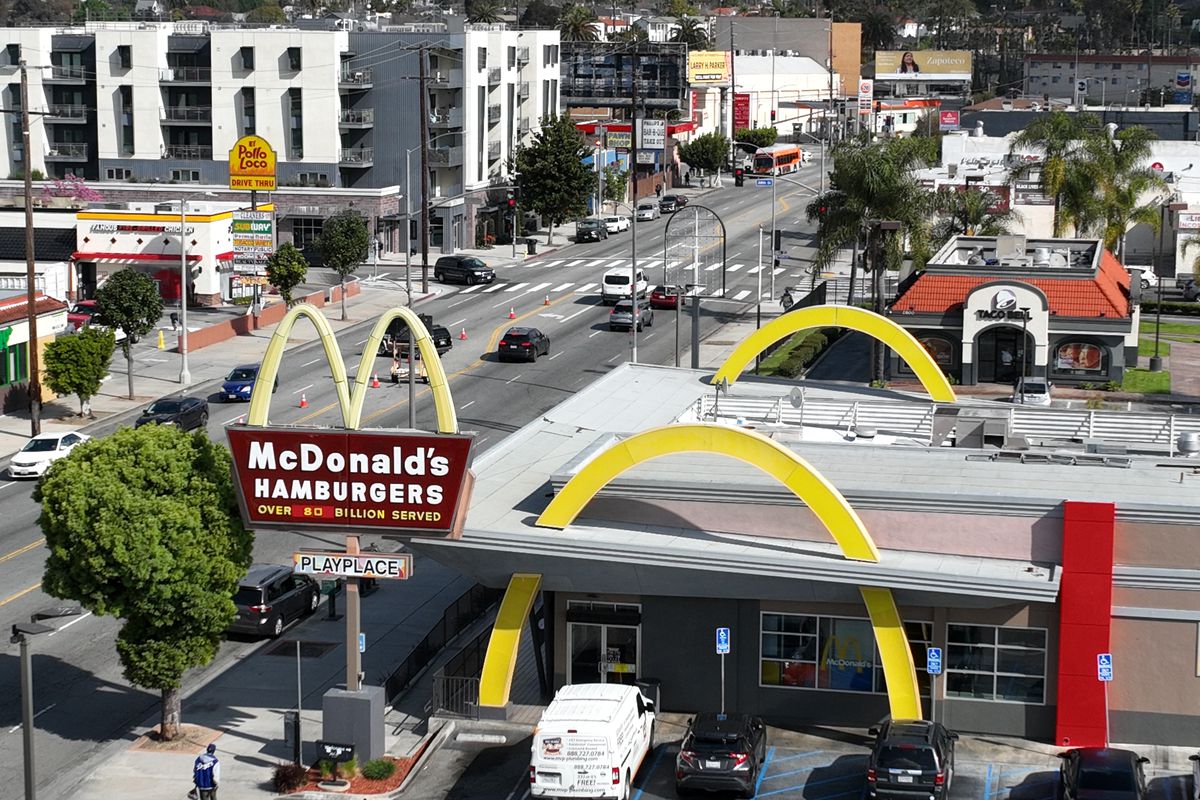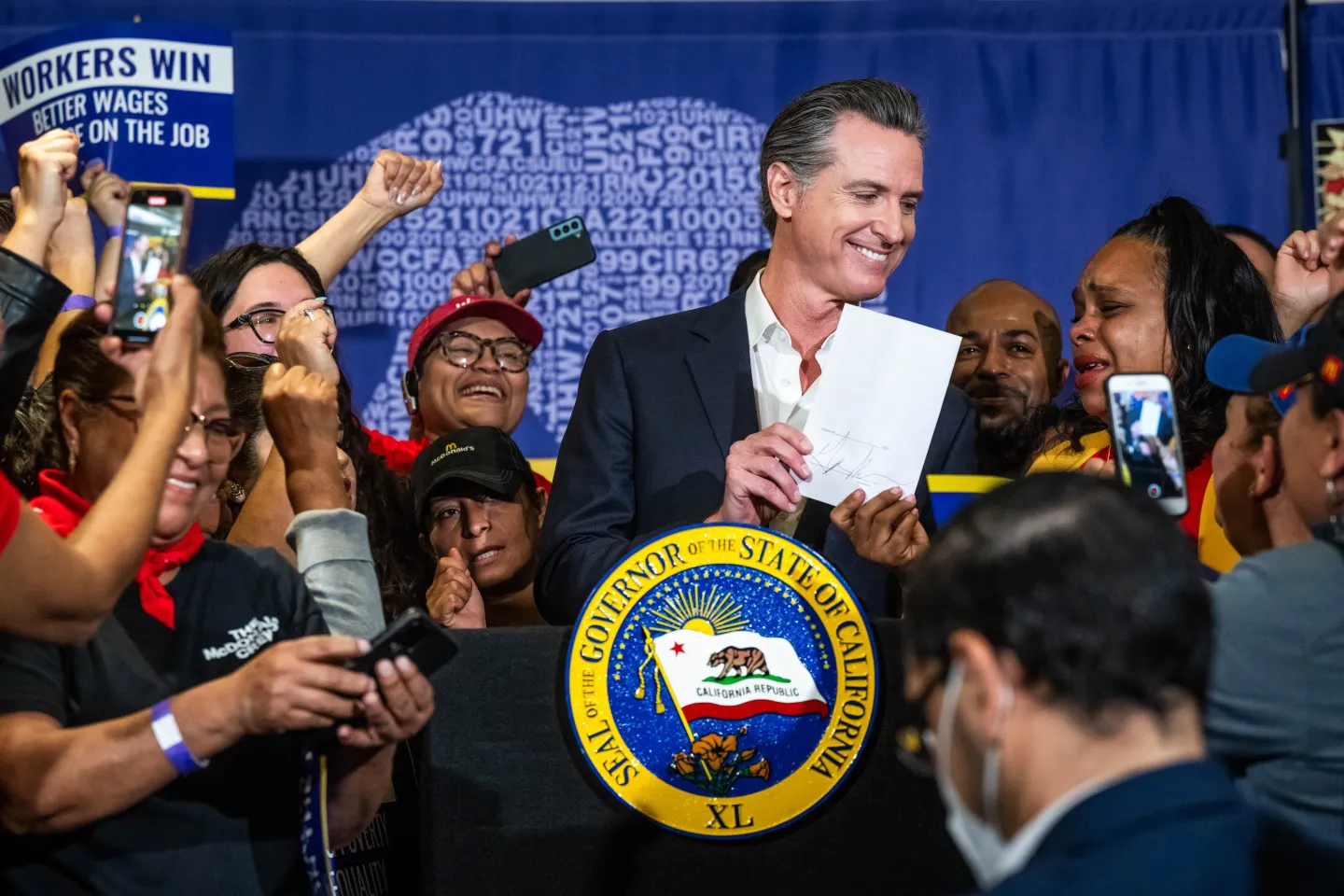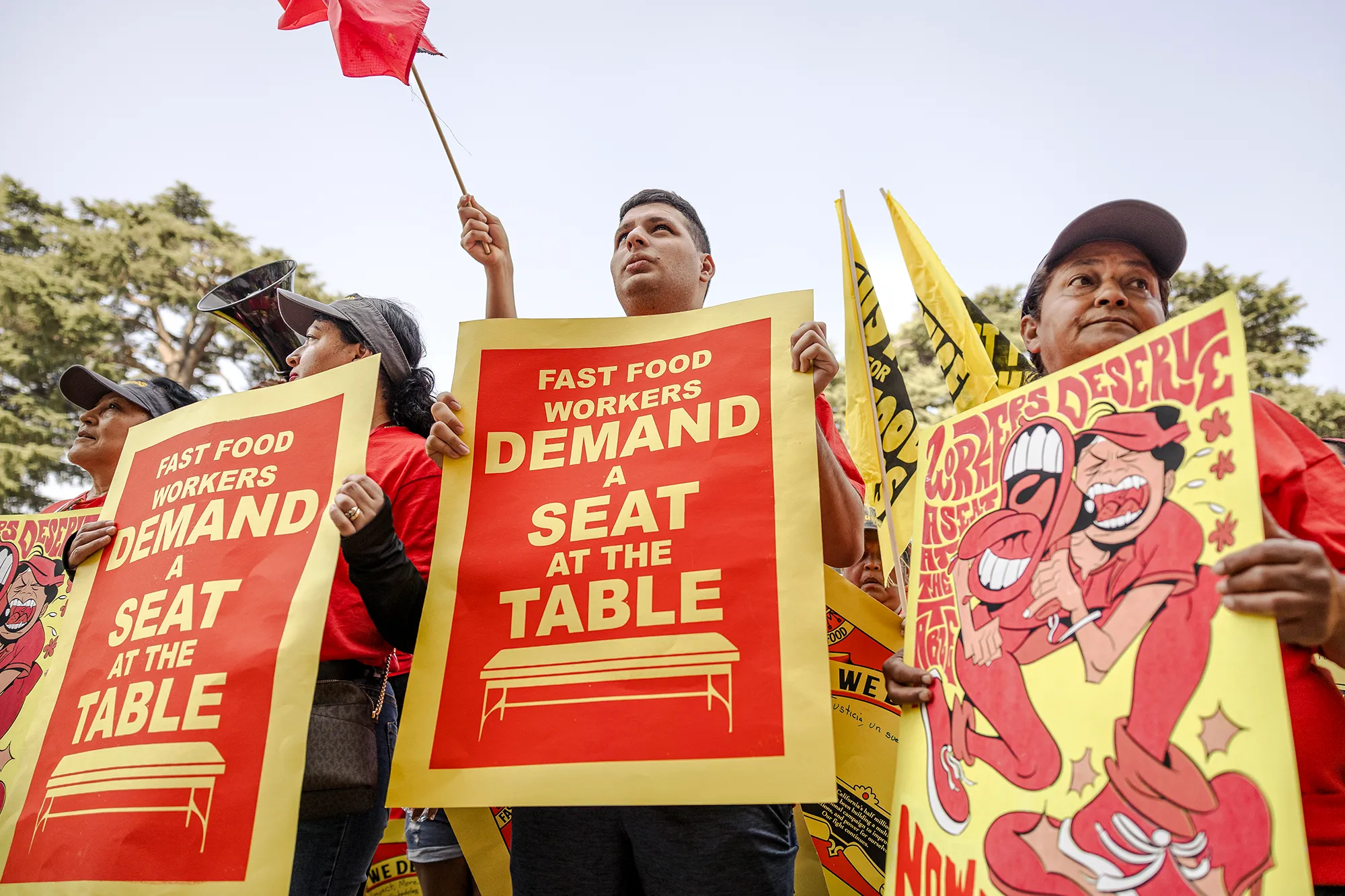California’s recent legislation to elevate the minimum wage to $20 for fast food workers has led to significant job cuts across the industry. Nearly 10,000 positions have been eliminated as restaurants grapple with soaring operational costs. The California Business and Industrial Alliance (CABIA) has voiced strong criticism against Governor Gavin Newsom for enacting a law that has put additional strain on already struggling franchises.

Rising Costs and Shrinking Staff
Since the implementation of the new wage law on April 1, numerous fast food chains have been forced to make drastic changes to their business models. Major brands like McDonald’s, Burger King, and In-N-Out Burger have responded by raising their prices significantly. In an effort to manage these increased costs, many chains have also reduced employee hours and accelerated their shift towards automation.
Tom Manzo, president and founder of CABIA, expressed his concerns, stating, “California businesses have been under total attack and total assault for years. It’s just another law that puts businesses in further jeopardy.”

The Real-World Effects of California’s Wage Increase
The fallout from the wage increase has been widespread. Rubio’s California Grill, known for its fish tacos, recently shut down 48 of its 134 locations, citing the unsustainable cost of doing business in California. The company also filed for bankruptcy shortly thereafter. Similarly, Fosters Freeze closed one of its Fresno locations due to the inability to afford the new wage requirements.
Consumer Reactions and Adjustments
As a direct consequence of these wage hikes, consumers are facing higher prices. A report from Kalinowski Equity Research highlights that Starbucks and Taco Bell raised their prices shortly after the law came into effect. Additionally, a LendingTree survey revealed that 78% of consumers now view fast food as a “luxury” due to the increased costs.

Looking Towards the Future
While the intent behind the wage increase was to provide fast food workers with more financial stability in a state known for its high cost of living, the reality has sparked a debate about the role of entry-level jobs in the economy. Tom Manzo remarked, “It’s a starter industry. You get a job as a kid working in a fast food restaurant and you learn some good work ethic and that takes you into life.”
This legislation has not only reshaped the economic landscape for fast food chains in California but has also ignited a broader discussion on the viability of such significant wage hikes in the context of the overall economic health and employment rates.










